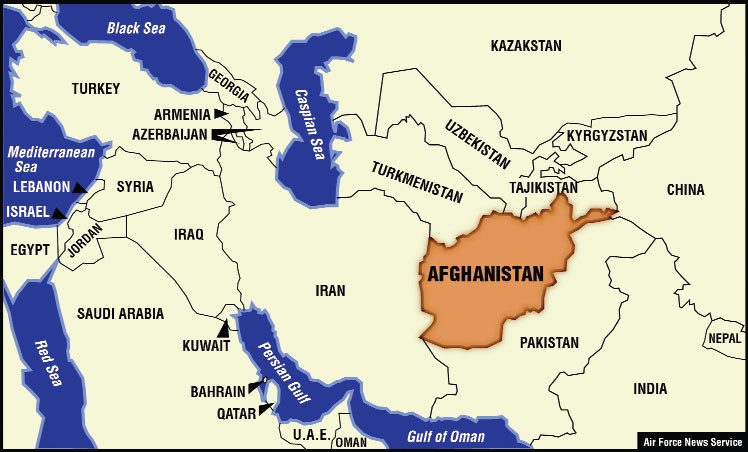
Afghanistan’s neighbours are hopeful about the country’s future despite the hurdles in the way

As Afghanistan finally seems to be inching towards relative peace, all eyes are set on countries in the region and how they respond to this new phase of stability in a country long marred by violence and distrust.
Afghanistan’s neighbours, Iran, Pakistan, India, China and Russia, have historically had hostile policies on Afghanistan. From the Cold War years to the post 9-11 realities, regional countries have always had difficulties in maintaining cordial relations not just with Afghanistan but among themselves.
To what extent is this new hope rooted in reality only time will tell. But a stable and relatively peaceful Afghanistan means much not just for the country itself but for the entire region.
In this backdrop, the countries in the region are expected to intensify their diplomatic efforts in order to safeguard their respective interests in the region, without trampling on each other’s interests.
How will their mutual rivalries, or friendships, play out in Afghanistan in future?
Various efforts have recently been made in this regard. In December 2018, an Afghan-Taliban delegation visited Iran and held bilateral talks on promoting peace and stability in Afghanistan.
Senior analyst on defence and strategic affairs Talat Masood explains how Afghanistan is important for Iran, "Despite the fact that Afghanistan is predominantly Sunni and Iran Shia, both countries have managed to maintain a fairly cooperative relationship. Iran has been very supportive of the Hazara community that is predominantly Shia. They have been supportive of the Tajiks and expanded their contacts with the Pashtuns."
Masood points out the Iranian government was initially opposed to the Taliban, but realising their growing power and importance and as a hedge against the US has been patronising them. "Differences between Iran and Afghanistan, however, remain over the issue of drug trafficking." Iran is now Afghanistan’s biggest trading partner, exporting goods valued at more than $ 2 billion. Iran hosts over a million Afghan refugees.
Pakistan’s Minister for Foreign Affairs, Shah Mehmood Qureshi, held talks with his Chinese counterpart, Wang Yi, in December on the restoration of peace in Afghanistan. Pakistan and Russia also agreed to continue efforts, including through the Moscow Format of Consultations, for supporting an Afghan-led and Afghan-owned peace process. This was decided during a visit of Qureshi to Moscow the same month where he held talks with his Russian counterpart Sargey Lavrov. A Pakistani official told the media the purpose of foreign minister’s visit was to take all key regional players into confidence on the peace talks that took place talks in Abu Dhabi in December 2018.
"In my view, the end of the Afghan war has never been so close as it happens to be today," believes Dr Rasul Bakhsh Rais, professor of political science at LUMS, and an expert on current affairs. He believes the US is not unmindful of the regional realities of Afghanistan. "The US will not be leaving without a settlement and will retain its capacity and alliances within the region to reasonably enforce the terms of the settlement."
US troops withdrawal adds to Beijing’s stakes in Afghanistan. It fears that instability in Afghanistan could spill over to its border.
"China’s interest is that Uyghurs do not get attracted toward Afghanistan. By joining the Taliban, they would receive training and weapons and become a threat to the government," says Masood. "They also have serious concerns about the Islamic State and Turkestan Islamic Movement and would like to ensure that they do not take advantage of the Afghanistan situation. More importantly, after US withdrawal from Afghanistan China sees a larger role for itself in the region." Experts also say that Beijing is concerned that if the situation in Afghanistan worsens after the US withdrawal, it could put the China-Pakistan Economic Corridor at a certain risk.
It is becoming increasingly clear that the Taliban are going to be a major component in the future political structure of Afghanistan. In this scenario, where does India stand? "India is deeply worried over this development as it feels it would be politically marginalised," says Masood. "Lately, it has been trying to make contacts with the Taliban leadership. Considering that India has provided considerable development assistance to Afghanistan and is in a position of doing so in future the Taliban leadership being a pragmatic group would like to maintain a relationship." However, India remains relatively marginalised in the current developing political situation.
Also read: Editorial
As far as Russia is concerned, its main interest in Afghanistan has been security-oriented. "Chaotic conditions in Afghanistan would have a spill over affect on the Central Asian states with adverse consequences for Russia. Moreover, by tacitly supporting Taliban it increases its leverage in the Afghan peace process and tries to counter US influence in Afghanistan," says Masood.
Despite a few problems, Russia has also tried to maintain good relations with the present Afghan government. Moscow, it seems, sees a larger role for itself in Afghanistan after the withdrawal of US forces.